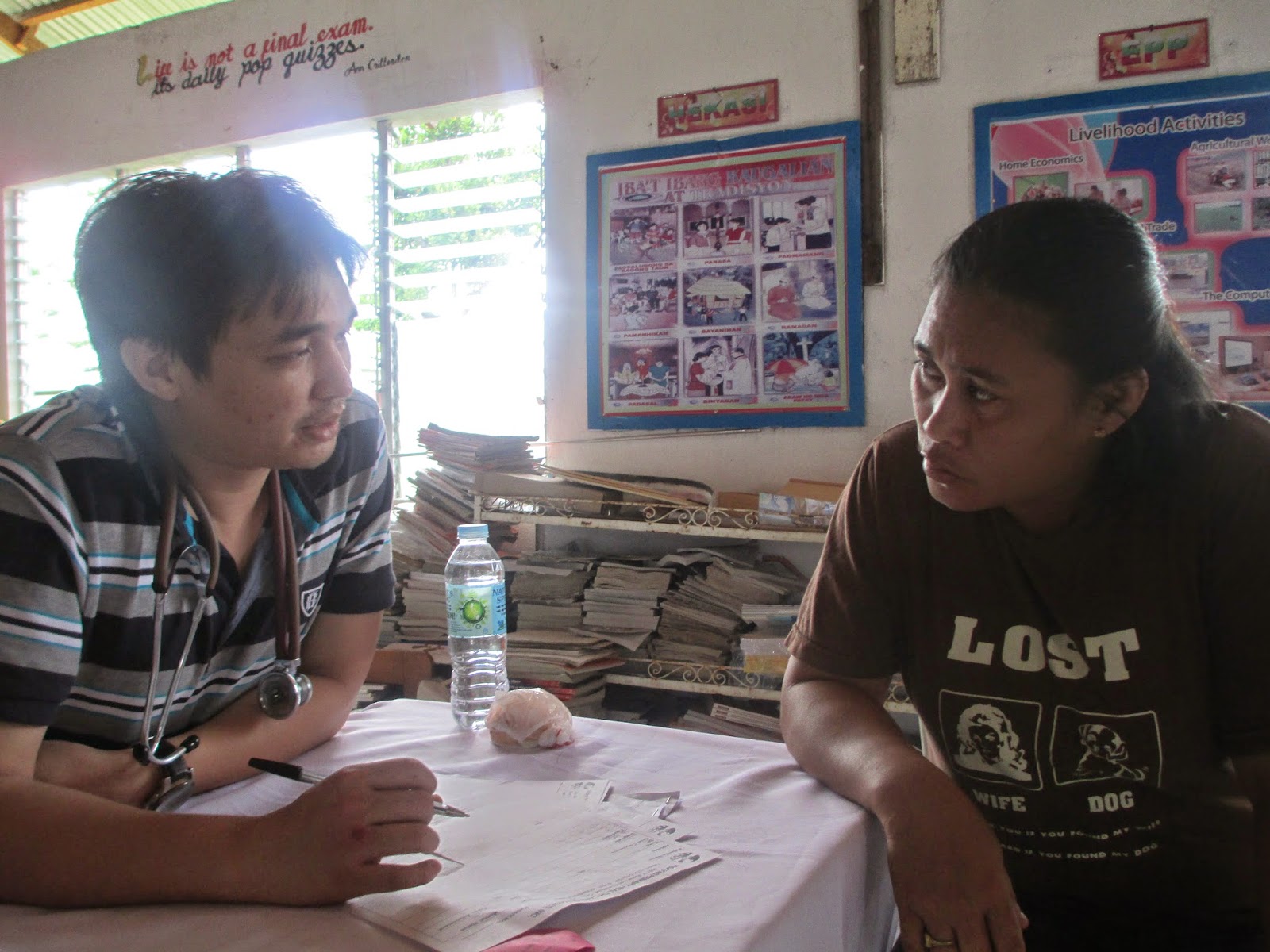The Visayas Primary Health Care Services held a medical mission in Barangay Tambongon, San Remegio, Cebu last September 14.
The barangay reached by a three-hour bus ride north from Cebu City, is one of the barangays severely affected by Typhoon Yolanda in November 8, 2013.
The barangay reached by a three-hour bus ride north from Cebu City, is one of the barangays severely affected by Typhoon Yolanda in November 8, 2013.
Tambongon Elementary School, the mission site.
The mission was supported by Lands Aid, a humanitarian aid organization based in Germany. Its Philippine project coordinator Andreas Schmitz coordinated with the VPHCS to ensure the success of the mission. Schmitz has been based in San Remegio since July this year to oversee the repair and construction of houses for about 300 families affected by the typhoon in San Remegio. Lands Aid had also sent volunteers of doctors and nurses to deliver relief and medical assistance after the typhoon in November.
The 40-member team of doctors, nurses, dentists, community health workers and volunteers rendered medical and dental services and gave eyeglasses.
Patients waiting outside the consultation room.
A total of 185 adults and 143 children were attended to by 9 doctors. Dental services were provided by six dentists, members of the Cebu Dental Society. The Juanito I. King Foundation also provided its dental mobile van. A total of 136 patients had teeth extraction and oral prophylaxis. Flouride solution was also given to the children by the dentists in order to protect their teeth from caries.
Patients came from neighboring barangays of Tambongon and neighboring barangays of Kayam, Anapog, Dapdap, Tacop, Mano, and Batad.
Dr. Florespina Jeanjaquet inside the dental van.
Dr. Lynwood Tabanao with a patient.
Volunteer Jafe Sepulveda conducts blood sugar test.
The medical mission came at a time when agriculture in Barangay Tambungon has not yet been completely restored, food security remains a problem and malnutrition is common that in turn makes one susceptible to contracting diseases. Hunger, poor nutrition and lack of income make them and their children very susceptible to illnesses while those who become sick cannot afford to buy their necessary medicines. Medicines and medical supplies in government health centers that have just resumed their normal operations are still lacking to meet the needs of the people.
Patients waiting for services in the dental van
of the Juanito I. King Foundation.
Acute upper respiratory tract infections or cough and colds were common among both adults and children, since, even 10 months now after Typhoon Yolanda, many families continue to live in temporary tents, makeshift houses or shelters vulnerable to harsh climate conditions, or share homes with other families resulting in overcrowded conditions that make them susceptible to easy transmission of diseases. .
Hypertension seen among the adults in the mission was a serious concern since uncontrolled hypertension can lead to serious complications such as stroke, kidney problem or heart enlargement. Osteoarthritis, muscle pains and tension headache were also common among adults who were farmers that have to work hard in the farms in order to put food on their tables, thereby putting their bodies into stress and exertion. Non-ulcer dyspepsia was also common since being farmers, they have the tendency to skip their meals while working in the fields or simply because there was no food to eat at all.
Volunteer nurse Paul Serad takes blood pressure.
A total of 23 children had pneumonia and 15 had skin infections. A total of 51 patients had their blood sugar tested for diabetes but only six were found to be diabetic. Reading eyeglasses were provided to 100 patients.
The medical consultation room.
VPHCS staff dispense the medicines.
All patients were properly given medicines bought from the funds from Lands Aid. They included essential medicines such as antibiotics, analgesics, anti-pyretics, anti- hypertensives, antacids, ferrous sulfate, anti-diabetic, mucolytic, bronchodilator, multivitamins, and many others.
The medical, dental, nursing team and volunteers.












